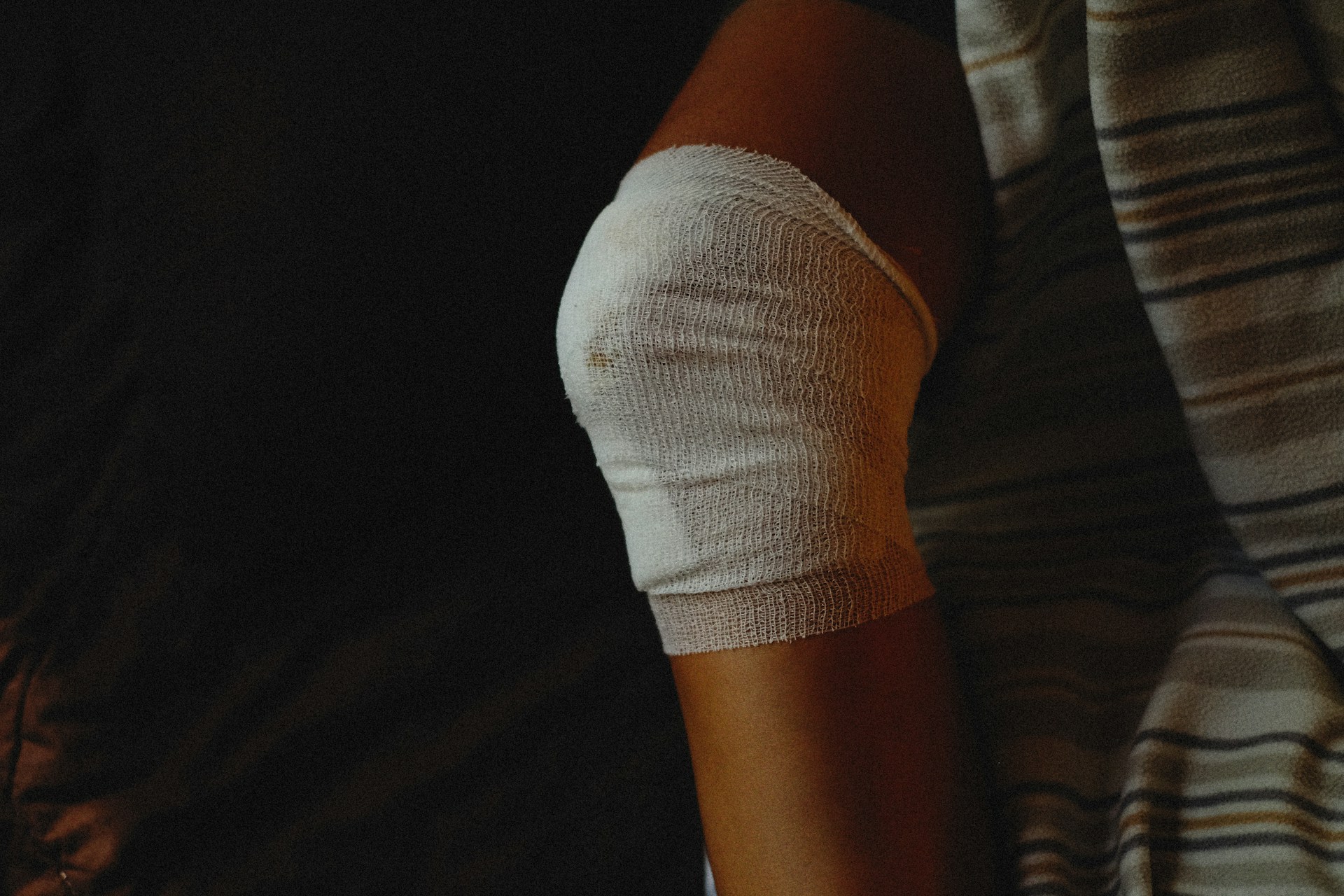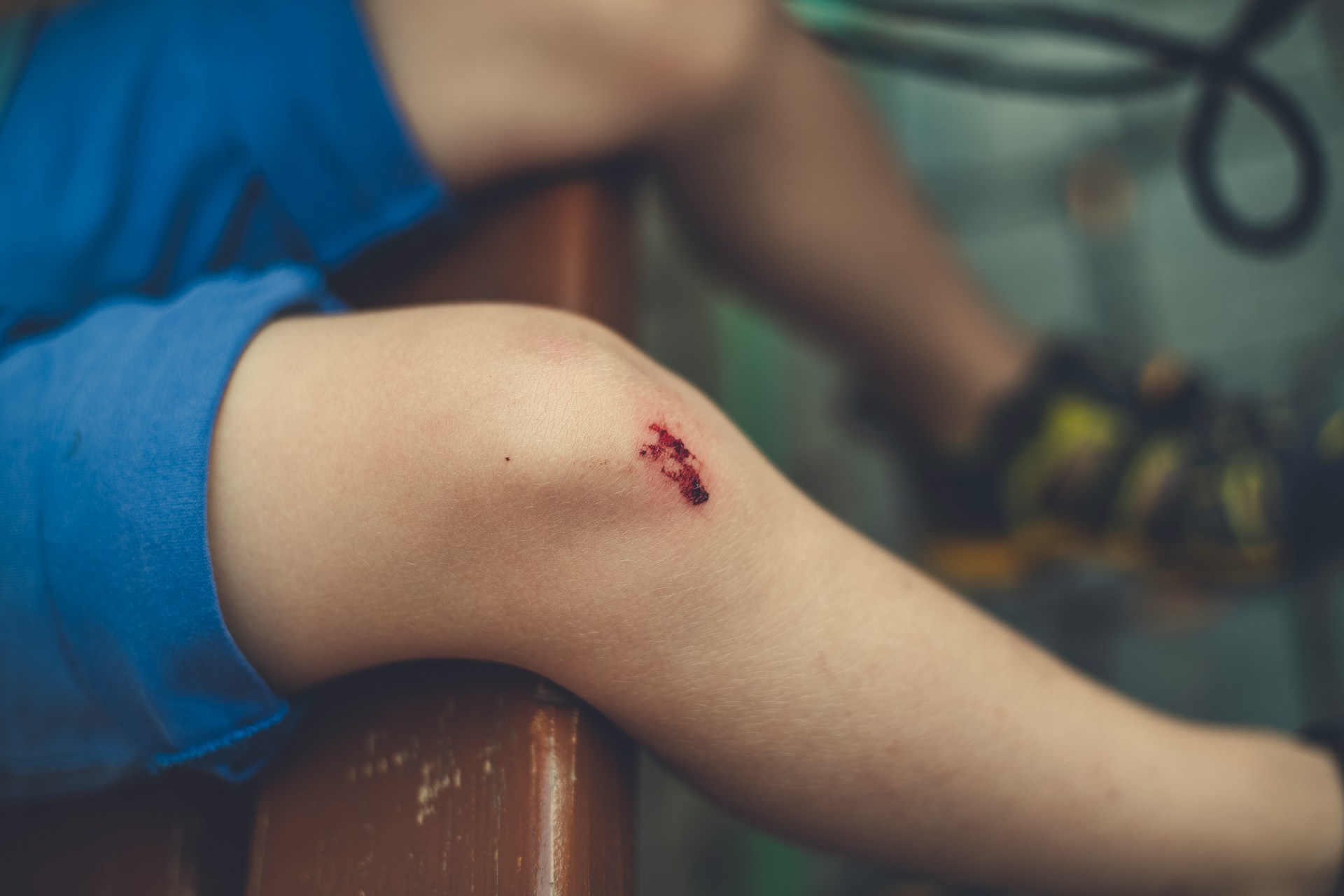Knee injuries are a common and serious consequence of unexpected falls, often leading to significant pain, mobility issues, and long-term recovery challenges. Whether it’s a simple misstep or a slip on a wet surface, these injuries can disrupt daily activities and require extensive medical care. Understanding how to treat and recover from knee injuries effectively is crucial for restoring function and quality of life.
If you’ve sustained a knee injury from a fall, consulting with the Austin slip and fall attorneys at Shaw Cowart LLP can provide crucial support and guidance on legal options. This article explores the types of knee injuries common from falls, effective treatment methods, and recovery tips to help you get back on your feet.
Common Types of Knee Injuries from Falls
Falls can cause various knee injuries, each with challenges and treatment requirements. One of the most common injuries is a sprain or strain, where the ligaments or muscles around the knee are overstretched or torn. These injuries typically cause pain, swelling, and limited movement.
More severe falls can result in fractures, particularly of the kneecap (patella), which can significantly impair mobility and require surgical intervention. Ligament injuries, such as tears in the anterior cruciate ligament (ACL) or meniscus, are also frequent outcomes of falls and can destabilize the knee joint. Understanding the type of injury is essential for developing an effective treatment and recovery plan.
Immediate Steps to Take After a Knee Injury
Taking the right steps immediately after a knee injury can significantly impact your recovery. Begin with the R.I.C.E. method: Rest the injured knee to prevent further damage, Ice the area to reduce swelling and pain, Compress with an elastic bandage to provide support, and Elevate the knee above heart level to minimize swelling.
Over-the-counter pain relievers, like ibuprofen or acetaminophen, can help manage pain and inflammation. It’s important to seek medical evaluation as soon as possible to diagnose the injury and receive appropriate care accurately. For serious injuries, such as those involving severe pain, inability to bear weight or visible deformities, seek emergency medical attention immediately.
Effective Medical Treatments for Knee Injuries
Depending on the severity of the knee injury, various medical treatments may be necessary. Physical therapy is often recommended to improve strength, flexibility, and range of motion. A tailored exercise program developed by a physical therapist can help restore function and prevent further injury.

For more severe injuries, such as ligament tears or fractures, surgical intervention may be required. Arthroscopic surgery, a minimally invasive procedure, can repair ligament damage or remove loose fragments from the knee joint. In some cases, total knee replacement surgery in Singapore may be necessary to address significant joint deterioration and improve quality of life. Post-surgical rehabilitation is critical to regain strength and mobility. Consulting with orthopedic specialists ensures you receive the most appropriate and effective treatment.
Home Care Tips for Managing Knee Injuries
Effective self-care at home is vital for recovering from knee injuries. Here are essential tips to help you manage your knee injury and promote a smoother recovery:
- Use Supportive Devices: Knee braces or crutches provide stability and support, helping to prevent further injury. They can assist in maintaining balance and reducing pressure on the injured knee, especially during activities.
- Perform Gentle Exercises: Follow your healthcare provider’s advice on gentle exercises that maintain flexibility and strength without knee overloading. These exercises are crucial for maintaining joint mobility and supporting muscle recovery.
- Apply Ice Packs: Regularly applying ice packs to the injured knee can help reduce swelling and numb pain. Ice the knee for 15-20 minutes every few hours, especially in the first few days after the injury.
- Elevate the Leg: Keep your leg above heart level whenever possible to minimize swelling and discomfort. This position helps reduce fluid accumulation around the injured area.
- Follow Physical Therapy Routines: Adhere to any prescribed physical therapy exercises or routines to aid recovery and restore full knee functionality. Consistency in these practices is key to rebuilding strength and improving mobility.
- Stay Patient and Consistent: Recovery takes time, so it’s important to be patient and consistent with your self-care practices. Following these tips diligently will contribute significantly to a successful and timely recovery.
Nutrition and Lifestyle Changes for Recovery
Proper nutrition and lifestyle adjustments can significantly aid in the recovery from knee injuries. A balanced protein-rich diet supports tissue repair and muscle strength, while calcium and vitamin D are essential for bone health. Staying hydrated and avoiding smoking or excessive alcohol consumption also promotes faster healing.
Maintaining a healthy weight is important to reduce stress on the injured knee. Incorporating low-impact activities like swimming or cycling helps maintain fitness without putting undue pressure on the knee. These changes contribute to a more effective recovery and help prevent future injuries.
Psychological and Emotional Support
Recovering from a knee injury can be mentally and emotionally taxing. Chronic pain and reduced mobility can lead to feelings of frustration, anxiety, or depression. Seeking support from friends, family, or professional counselors can encourage and help manage these emotions during recovery.

Engaging in activities that promote mental well-being, such as mindfulness, meditation, or gentle yoga, can also be beneficial. Staying positive and focusing on incremental progress can make the recovery journey more manageable. Psychological and emotional support is an integral part of the healing process.
Legal Considerations and Seeking Compensation
If you’ve sustained a knee injury from a slip and fall accident due to someone else’s negligence, understanding your legal rights is crucial. Pursuing compensation for medical expenses, lost wages, and pain and suffering can help alleviate the financial burdens associated with your injury. Consulting with experienced slip and fall attorneys can provide valuable guidance on your options and the best course of action. These legal professionals can help you understand the nuances of personal injury law and ensure your rights are protected.
Building a strong case requires thorough documentation of the incident. Collecting evidence, such as photographs of the accident scene, witness statements, and detailed medical records, is essential. This information supports your claim and helps demonstrate the extent of your injuries and their impact on your life. Legal experts can assist in gathering this evidence and navigating the complexities of filing a personal injury claim. Their expertise is invaluable in negotiating settlements or representing you in court to secure the compensation you need to recover and fully move forward after your injury.



